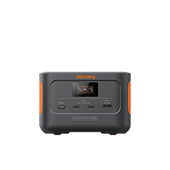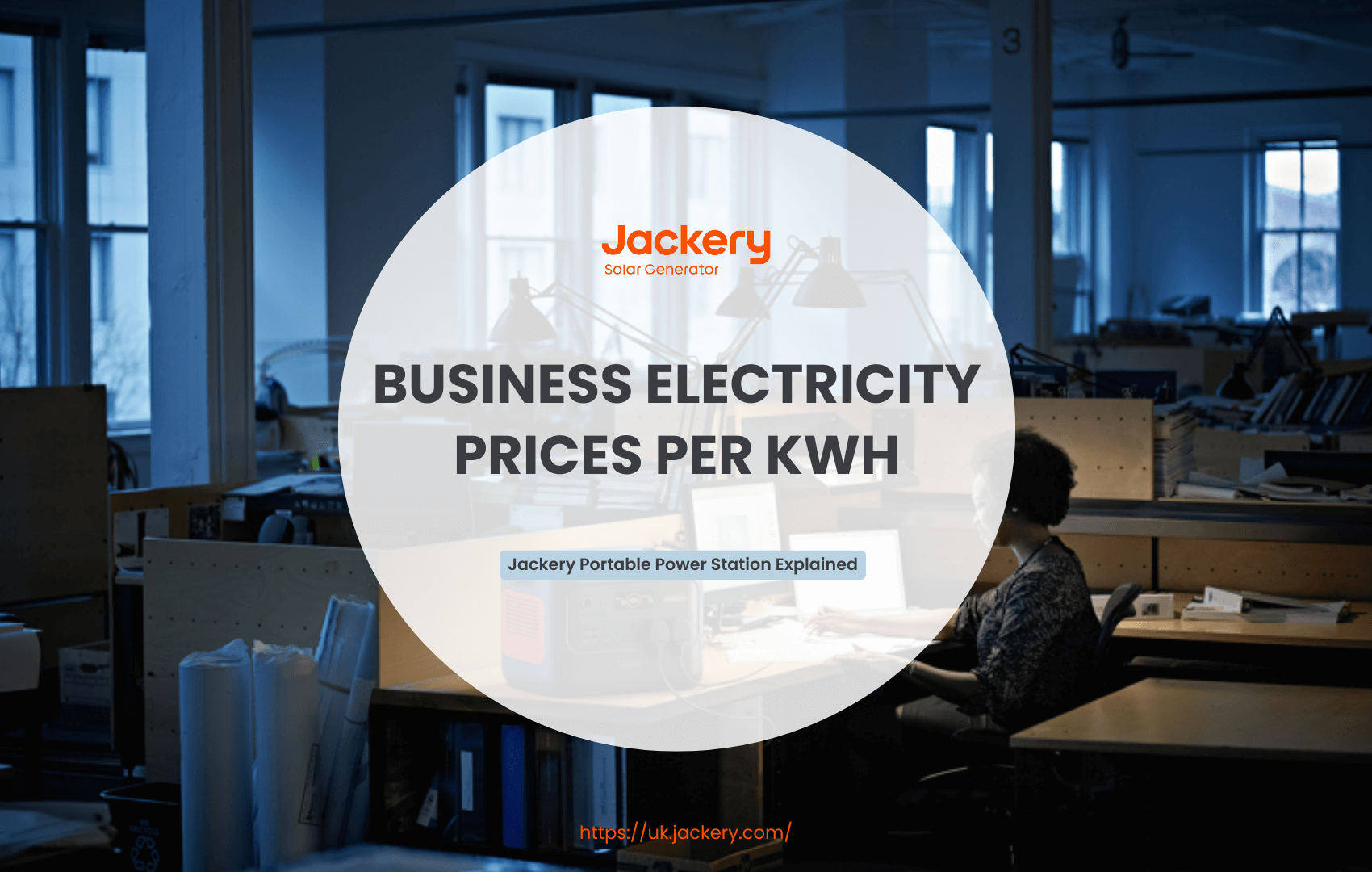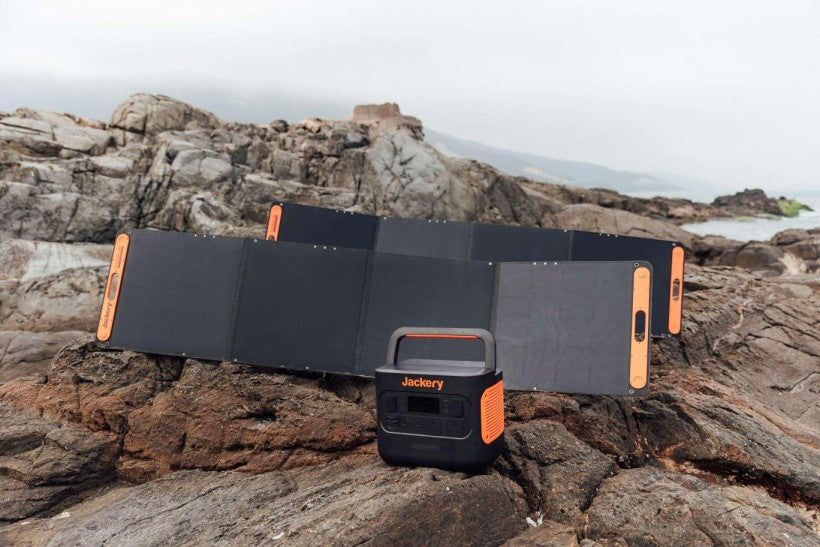For UK firms seeking to reduce energy expenses and increase profits, it's essential to understand the cost of power per kilowatt-hour (kWh). Business energy rates vary from household rates based on the provider, the type of contract, and the amount of electricity used each year.
Your spending can vary significantly depending on whether you choose a fixed or variable tariff, how you calculate your bill, and when and how to switch suppliers. This comprehensive guide covers current prices, average usage by company size, and offers valuable tips for reducing electricity bills. This helps businesses make informed decisions and secure the best energy packages available.
|
Key Takeaways: |
|
● The business electricity prices per kWh vary a lot based on the type of tariff, the supplier, and the length of the contract. Businesses with a 1-year fixed electricity plan will pay between 21.7p and 23.9p per kWh, starting in June 2025. ● Business energy rates are typically higher than residential rates because businesses use electricity in different ways and have varying contract periods. ● The size of a business and the amount of electricity it uses each year have a significant impact on the average energy consumption and prices. ● The most effective business energy deals are achieved by comparing suppliers using quotations based on actual usage. ● We highly recommend the Jackery Explorer 3000 v2 or 2000 Plus to power the appliances and electronics in your company. |
Current Business Electricity Prices per kWh in the UK
The price of electricity for businesses in the UK varies depending on several factors, including the length of the contract, the size of the business, and its location.
Starting in June 2025, businesses with a 1-year fixed electricity plan will pay between 21.7p and 23.9p per kWh, depending on their electricity usage. Business electricity rates have decreased significantly since peaking in 2022 and 2023, but they remain unstable due to the fluctuating nature of the energy market and wholesale prices.
Here is a list of the typical 1-year fixed-rate electricity prices for businesses right now:
|
Business size |
Annual consumption (kWh) |
1-year fixed rate (pence per kWh) |
|
Small |
10,000 – 50,000 |
23.9p |
|
Medium |
50,000 – 100,000 |
21.9p |
|
Large |
Over 100,000 |
21.7p |
(Data Source: Business Energy Deals)
Business Energy Deals states that these rates are based on averages for businesses transitioning to a new fixed-rate contract. Still, they may vary depending on your location and energy usage. For instance, firms in London tend to pay more than those in the North due to differences in regional network pricing and demand.
Furthermore, larger businesses often have lower unit rates since suppliers offer better discounts for higher volumes of usage. This means that buying energy in bulk is a more economical choice. Smaller businesses frequently pay more per unit due to lower usage and less competitive contracts.
If your firm uses between 25,000 and 50,000 kWh of electricity a year, you probably fall into the "small to medium" category. The average price for a unit of electricity in this range is approximately 23.9p per kWh at present. If you lock in now, a 1-year fixed rate of 21.7p per kWh is typical for firms that use more than 100,000 kWh a year.

How Do Business Electricity Rates Compare to Domestic Rates?
When comparing energy prices in the UK, it is essential to note that business electricity rates differ from residential energy rates. The key distinction lies in how rates are determined, how contracts operate, and the level of flexibility afforded to clients.
Essential Differences Between Business and Home Electricity Prices
The Ofgem Energy Price Cap sets a cap on the amount suppliers can charge for each kilowatt-hour (kWh) of energy used in the home. The average price of electricity for homes under the cap is about 22.36p per kWh, based on a regular variable tariff, as of June 2025. This helps protect people from prices that fluctuate significantly.
On the other hand, there is no energy price cap for corporate electricity; therefore, market forces set the rates. Firm energy contracts are tailored to each firm, so suppliers offer each one a unique price based on the amount of energy used, the firm's credit rating, and its location. Often, this means reduced pricing for firms that consume a significant amount of energy, but it can result in higher prices for small businesses.
Here is a general comparison of the rates for electricity used in homes and businesses:
|
Tariff Type |
Average Unit Price (p/kWh) |
Standing Charge (Daily) |
Regulated by Price Cap |
|
Domestic (variable) |
22.36p |
~60p |
Yes |
|
Business (small user) |
23.9p |
80–100p |
No |
|
Business (large user) |
21.7p |
Custom pricing |
No |
Why Business Energy May Appear More Expensive?
Business energy rates may be higher than home rates. Still, the way these contracts are structured means that they are typically more favourable for clients who use a significant amount of electricity over time. Business energy contracts usually last one to five years, whereas home energy prices are more flexible but can vary frequently. This means that a firm can obtain a favourable rate and avoid price spikes that occur at specific times of the year.
Additionally, businesses are subject to a 20% VAT on their electricity usage, unless they qualify for a lower rate (for example, if they consume relatively little electricity). Home users only pay 5% VAT on their electricity bills.
Factors That Influence Business Electricity Prices per kWh
In the UK, the pricing of energy for businesses is not fixed and can vary significantly from one company to another. Business electricity prices differ from home electricity prices, as each supplier sets its rates based on several factors, including the amount of energy the business uses, the type of contract it has, its location, and its business credit score. There is no price cap, so one business may spend significantly more or less per kilowatt-hour than another, even if they are in the same industry or zip code.

Factor 1: Business Size and Annual Usage
The amount of energy your business uses each year is one of the most significant factors that affect your electricity costs. The more electricity your firm uses, the less it costs per unit. Because they buy more, bigger enterprises can negotiate cheaper unit rates, which makes them more appealing to suppliers.
On the other hand, small enterprises usually have to pay more per unit because they use less and have less power to negotiate. Businesses that use more than 100,000 kWh a year can get rates as low as 21.7p per kWh. Businesses that utilise 10,000 to 50,000 kWh per year may spend around 23.9p per kWh.
Factor 2: Contract Type and Duration
Business energy contracts are typically for a fixed term and are tailored to meet the specific needs of the business. This means that the rates are set in advance and stay the same for the length of the contract. The price may change depending on the contract duration, ranging from one to three years.
The supplier is more likely to incorporate a buffer for possible fluctuations in wholesale prices in longer contracts. Shorter contracts may have cheaper beginning rates, but they also leave the business open to price adjustments after the contract ends.
Factor 3: Location and Regional Network Costs
The unit rate also depends on the location of your firm. The supplier considers the varying costs of regional distribution when determining the final kWh pricing. Companies in places with older or more expensive grid infrastructure may have to pay more than those in areas with newer, more efficient networks. This can make a significant difference in energy bills, even in neighbouring regions.
Factor 4: Time of Electricity Use
Costs can also change depending on when a company utilises power. Some rates have time-of-use pricing, which means that using energy during peak hours (usually weekdays from mid-morning to early evening) can cost more than using it overnight or on weekends. If they are on the right tariffs, businesses that are primarily open during off-peak hours may be able to get much lower rates.
Factor 5: Credit Score and Payment History
The credit profile of a firm can affect the quote it gets from energy companies. Companies with a good financial history typically receive better terms and lower unit rates. On the other hand, suppliers may charge extra or ask for a deposit from enterprises with poor credit ratings because they are perceived as higher risk. This means that firms need to have good credit when requesting estimates from suppliers.
How Are Business Electricity Bills Calculated?
Business energy bills are different from home electricity bills since they use several other factors to figure out how much you owe. Most of these factors are based on your contract and the amount of service you use.
This means that you need to comprehend your bill to keep your expenditures down. Every part, whether it's fixed or based on the amount of power used, contributes to the total cost of a business's electricity bill per kWh and per billing cycle. Knowing what's included can help you find ways to lower your payment or switch to a better tariff.

Unit Rate and Standing Charge
The two main costs on a business's power bill are the unit rate (per kWh) and the standing charge (a fixed daily fee). The unit rate represents the cost of each kilowatt-hour of electricity consumed. In contrast, the standing fee is the payment for keeping your company's connection to the grid, regardless of the amount of electricity utilised.
Most business energy bills are based on these two factors. Comparison sites indicate that business energy bills comprise a unit cost for the electricity used and a standing charge, both of which are determined when you sign a fixed contract.
Meter Type and Readings
Your cost is also affected by how your electricity use is measured. The sort of meter you have—single-rate, two-rate, or half-hourly—will impact how your usage is recorded and paid. Businesses with half-hourly meters get their bills every 30 minutes through automatic data transmission. This makes billing particularly precise and timely.
Businesses that use more than 100,000 kWh of electricity per year are required by law to have a half-hourly meter installed. This means that their prices can change throughout the day based on real demand.
Estimated vs Actual Usage
Another key factor is whether the bill is based on an actual or projected meter reading. If you don't send in regular readings, your suppliers may estimate your usage, which could result in you paying too much or too little. To avoid mistakes, businesses should either send in monthly readings or install a smart meter. If your bill is only an estimate, you might be paying too much or too little. This can mess up your financial planning later on.
Non-Commodity Costs
Electricity bills for businesses include more than just the cost of energy. People commonly refer to these as "non-commodity costs." They include items such as government programs, environmental levies, capacity market prices, and network maintenance.
These extra charges can make up more than half of the entire amount. Some of the costs are taxes and levies, third-party charges, supplier margins, and the cost of making energy. They are baked into the unit cost or added as separate charges, even though they aren't always listed on the statement.
VAT and CCL (Climate Change Levy)
Businesses are required to pay 20% VAT on electricity, but if they use it in an amount less than a certain threshold, they can opt for a lower rate of 5%. Businesses also have to pay the Climate Change Levy (CCL), a government tax designed to promote energy efficiency and reduce greenhouse gas emissions. As of 2024, the CCL will charge 0.775p per kWh for power. However, some industries or charities may be exempt from paying or may be eligible for a discount.
Fixed Versus Variable Tariffs: Which Is Better for Your Business?
Selecting the correct tariff is a crucial step in reducing your business's electricity costs. In the UK, business energy suppliers generally offer two kinds of tariffs: fixed and variable. Depending on your firm's operations and the level of risk you're willing to accept with changing energy prices, each approach has its pros and cons. Understanding these differences can help you make informed choices based on your energy needs and budget.
What Is a Fixed Tariff?
A fixed tariff means that your business agrees to pay the same amount per kilowatt-hour for the duration of the contract, which is typically between one and three years. This type of tariff protects businesses from market fluctuations and provides them with a clear understanding of their prices.
This makes it easier for many firms to plan their budgets. Companies that wish to avoid unexpected cost increases when wholesale prices fluctuate like to use fixed tariffs. However, if you want to transfer suppliers before the contract expires, you may be required to pay an early termination fee.
What Is a Variable Tariff?
Prices for variable tariffs can fluctuate over time, primarily due to changes in the market or fluctuations in supplier costs. They might offer reduced starting rates, but the downside is that prices may increase at any time, which can alter the total amount you pay for power.
Businesses that can adjust their energy usage in response to price fluctuations may find variable tariffs helpful, but they must continually monitor the market.
Which Tariff Offers More Budgeting Security?
Businesses seeking consistent and predictable energy expenses should typically opt for fixed tariffs. They lock in your unit rates and standing costs, which protect your business from unforeseen price increases and make it easier to manage your finances. This is especially critical when energy markets are unstable and wholesale prices fluctuate rapidly.
When Might a Variable Tariff Be Beneficial?
Businesses willing to deal with some uncertainty and take advantage of decreasing energy prices may find variable tariffs appealing. This type of tariff may be advantageous for organisations that can adjust to change or closely monitor market trends. This strategy, on the other hand, necessitates close attention and a willingness to take the risk that costs will rise.
Are There Any Risks with Fixed Tariffs?
Fixed tariffs ensure that rates remain consistent; however, businesses are often required to sign a contract for the entire term of the agreement. Leaving early typically requires paying exit fees, which can be costly. Before signing a contract, businesses should consider how long they intend to stay on a fixed tariff and what their future energy demands will be.
How to Decide Which Tariff Is Right for Your Business?
The optimum tariff for your business depends on several factors, including the level of risk you're willing to take, your usage, and your cash flow needs.
Fixed tariffs offer the stability you need, allowing you to know exactly how much you'll pay each month. Variable tariffs can be better for you if you don't mind a little volatility in exchange for the possibility of saving money. You can choose the best solution by considering how flexible your firm is and how it manages its finances.
How to Lower Your Business Electricity Costs?
To increase your firm's profitability, you need to reduce its electricity bills. Many UK companies' energy guides suggest that the best strategies for businesses to minimise their electricity bills are to use less energy and secure the best tariff. Your firm will be more competitive and financially sound if you know how to minimise costs reasonably.

Tip 1: Conduct an Energy Audit to Identify Savings
Business energy providers recommend conducting an energy audit first to identify areas where electricity is being used inefficiently. This technique identifies areas where businesses can make adjustments, such as updating outdated equipment or reducing energy consumption. Identifying unnecessary consumption is one of the simplest methods to save kilowatt-hours and cut your bills.
Tip 2: Invest in Energy-Efficient Equipment
UK company energy specialists strongly suggest replacing obsolete appliances with energy-efficient ones, such as LED lights and HVAC systems that save energy. These kinds of modifications can significantly reduce the amount of electricity used per kilowatt hour. Some vendors and government programs offer businesses financial incentives or subsidies to purchase energy-efficient technology, making this a viable option for many.
Tip 3: Use Smart Energy Management Tools
Businesses are encouraged to install smart meters and energy management systems, as they enable them to monitor their electricity usage in real-time. This helps find wasteful use and change behaviour, or how equipment is used as needed. Experts say that firms that utilise these technologies can maximise their electricity use, including shifting demand to off-peak periods, which can result in significant savings on energy.
Tip 4: Negotiate and Review Your Tariffs Regularly
UK business energy comparison sites emphasise the importance of periodically checking and negotiating your prices to ensure you're not overpaying.
Suppose your business consumes a significant amount of power or uses it predictably. In that case, providers may offer you better rates or contracts that are more tailored to your needs. You can obtain better prices per kilowatt-hour and avoid paying more than the market rate by regularly checking your tariff and shopping around.
Tip 5: Encourage Energy-Saving Practices Among Staff
People often suggest making minor changes to your behaviour, such as turning off lights and equipment when you're not using them, avoiding standby modes, and encouraging staff to be more mindful of energy use. By using less electricity, all of these items can help your business save money on its energy bills.
How Jackery Portable Power Stations Help to Save Electric Bills?
Jackery Portable Power Stations can be a surprisingly efficient tool for organisations looking to cut their electricity expenditures, especially those with specialised operational needs or in areas with changing energy rates. While they will not replace an ample industrial power supply, their advantages stack up, especially when combined with solar power.
Many commercial electricity tariffs are structured with Time-of-Use (TOU) rates, where electricity costs are significantly higher during peak demand hours (e.g., business hours, late afternoon to early evening) and lower during off-peak hours (e.g., overnight).
Businesses can charge larger Jackery units (like the Explorer 2000 Plus / 3000 v2) during off-peak hours when electricity is cheapest. Then, during expensive peak hours, they can use the stored energy from the Jackery to power non-critical loads or even specific high-draw equipment.
Jackery Explorer 3000 v2
The Jackery Explorer 3000 v2 is a powerful portable power station with a 3072Wh capacity, 3600W output, and 7200W surge power, which can indeed contribute to saving business electricity bills, especially for small to medium-sized businesses, remote operations, or specific departments within larger organisations.

Reduced Grid Dependence: The most significant way the Jackery Explorer 3000 v2 saves on electricity bills is by integrating with Jackery SolarSaga 200W solar panels. Businesses can generate their own clean, free electricity from the sun. This solar power can then be used to run equipment, charge devices, and generally offset electricity drawn from the grid.
Lower Carbon Footprint: Beyond direct cost savings, using solar energy reduces a company's carbon footprint, which can help with corporate social responsibility (CSR) programs and perhaps attract environmentally aware customers.
Load Shifting: Many commercial electricity rates, particularly for businesses, are based on Time-of-Use (TOU) pricing. This means electricity is more expensive during "peak" hours (e.g., during the day or early evening when business operations are in full swing) and cheaper during "off-peak" hours (e.g., overnight). The Jackery 3000 v2 allows businesses to implement load shifting. You can charge the power station during off-peak hours when electricity is cheapest (or primarily via solar during the day).
Avoiding Costly Disruptions: Power outages can be incredibly costly for businesses, resulting in lost productivity, spoiled goods (particularly for food-related companies), data loss, and missed deadlines. The Jackery Explorer 3000 v2 features a fast UPS (Uninterruptible Power Supply) function (less than 20ms). This means it can seamlessly take over powering essential equipment, such as computers, servers, point-of-sale systems, or refrigerators, during a blackout.
|
Business Electronics & Appliances |
Running Time |
|
Printer (800W) |
3.1H |
|
Computer (200W) |
12.3H |
|
Lighting (100W) |
24.6H |
|
Coffee Maker (550W) |
4.5H |
|
Projector (100W) |
24.6H |
(*The working hours are only for reference; the actual working hours depend on your usage.)
Jackery Explorer 2000 Plus
The Jackery Explorer 2000 Plus stands out as a powerful solution for businesses seeking to reduce their electricity bills due to its specialised capabilities that cater to commercial needs for consistent, flexible, and sustainable power.

Tailored to Business Growth: This is perhaps the most significant feature for businesses. The base Explorer 2000 Plus offers a substantial 2042.8Wh (approx. 2kWh) capacity. However, its modular design allows you to add up to five additional battery packs, expanding the total capacity to a massive 12kWh.
Meeting Diverse Demands: This adaptability enables firms to start with a smaller configuration and expand as their power requirements increase or as they implement more energy-saving methods. Whether it's powering a few critical office devices during peak hours or providing prolonged backup for a complete small business operation, the 2000 Plus may be tailored to your requirements.
Powers Heavy-Duty Equipment: With a continuous output of 3000W and a peak surge of 6000W, the Explorer 2000 Plus can handle most standard commercial appliances and power tools. This means businesses can rely on it to run equipment like coffee machines, commercial blenders, small refrigerators, power drills, saws, and lighting systems without tripping breakers.
Strategic Energy Cycling: By charging the Jackery Explorer 2000 Plus (and its expansion batteries) from the grid during off-peak hours (when electricity is cheapest) and then using that stored energy to power operations during peak hours, businesses can drastically reduce their high-cost energy consumption. The large capacity of the 2000 Plus makes this peak shaving strategy much more effective for commercial settings than smaller units.
|
Business Electronics & Appliances |
Running Time |
|
Printer (800W) |
2H |
|
Computer (200W) |
7.7H |
|
Lighting (100W) |
14.2H |
|
Coffee Maker (550W) |
2.9H |
|
Projector (100W) |
14.2H |
(*The working hours are only for reference; the actual working hours depend on your usage.)
Another Saving Way: How to Compare and Switch Business Electricity Providers?
Changing your business's power provider can help you save money on energy and find a plan that better suits your firm. The UK market offers a range of different tariffs, contract lengths, and provider terms, which can make the process appear complicated. You can make a smooth and advantageous move by knowing how to compare deals and the actions required in transferring suppliers.
How Do You Compare Business Electricity Providers?
When comparing commercial power providers, it's crucial to look at more than just the price per kilowatt-hour. Business energy comparison sites advise you to consider the full cost of the tariff, which includes standing costs, the contract term, and any exit fees. When you compare costs based on how much electricity your business uses, you'll get a better idea of how much money you could save.
Many comparison apps request your latest bill or your yearly electricity usage. This helps them provide you with prices that are more specific to your level of consumption. This personalised comparison ensures you see rates tailored to your size and consumption, not just any old pricing.
What Should You Check Before Switching?
Before transferring, you should carefully review the terms of your current contract, including the expiration date and any penalties for early termination. It is crucial to be aware of these fees in advance, as many suppliers may charge penalties if you end your contract before the designated period finishes. Businesses can also check to see if their existing provider offers any loyalty incentives or renewal plans.
Reading reviews and ratings is another helpful technique for examining the dependability and customer service reputation of potential new providers. If you encounter any issues during or after the changeover, having strong customer service can be incredibly beneficial.
How Does the Switching Process Work?
Switching commercial electricity providers is relatively easy, and the process typically takes around 21 days. Once you agree to work with a new supplier, they will handle the transfer procedure, which includes notifying your existing provider and setting up the new contract.
Your energy should continue to flow smoothly without any issues during the transfer, and you won't experience any power loss at any moment. Some firms are concerned about the complexity of the process, but most providers offer dedicated support to ensure a smooth transition.
Can You Switch During a Fixed Contract?
You can switch at any time, although firms with fixed-term contracts sometimes incur early exit costs if they change suppliers before the contract ends. You should consider both your existing supplier's renewal offers and new ones to determine if transferring is worth the investment.
FAQs
The following are frequently asked questions about the business electricity prices:
What is the current kWh price for business electricity?
The current price of electricity for businesses in the UK is typically between 25.7p and 27.5p per kilowatt-hour. This depends on where you live and who you choose as your supplier.
The cost of energy at the wholesale level and market demand may cause these rates to fluctuate, but this range provides businesses with an idea of what they can expect to pay in 2025. Businesses should regularly review their rates, as energy prices can fluctuate significantly and are often tied to the terms of the contract.
2. How much is commercial electricity per kWh in the UK?
In the UK, the average price of electricity for businesses is between 24.9p and 26.4p per kilowatt-hour, with a daily standing charge of approximately 70p. The provider, the contract length, and the firm size all affect these rates. Sometimes, larger organisations may have lower per-kWh expenses. Companies can plan their budgets more effectively and secure the best bargains on energy by understanding these costs.
3. What is the price cap per kWh for business?
UK businesses don't have to worry about a government-imposed price cap on their electricity bills, unlike UK homes. The Energy Price Cap is beneficial for homes, but businesses must negotiate their deals. Currently, the cap is set at approximately 25.73p per kWh for energy in the summer of 2025. Because of this, company energy prices may change more frequently; therefore, businesses need to evaluate tariffs and shop around regularly.
4. How much does 1 kWh of electricity cost in the UK?
The price of one kilowatt hour of electricity in the UK changes with the market, although for most people, it is usually between 24.5p and 25.7p, depending on the time of year and the price of the supplier. These numbers show the average expenses in both the home and business sectors, albeit they may vary slightly depending on how they are used and the terms of the contract.
5. Is 20 kWh a day a lot in the UK?
In the UK, using 20 kWh of electricity every day is considered excessive, especially for a regular home, which typically uses 10 to 11 kWh per day. Using 20 kWh a day could mean that you live in a bigger house, use gadgets that demand a lot of energy, or perhaps run a small business. For enterprises, usage levels may vary significantly depending on their activities, but for home users, 20 kWh is more than twice the average amount used.
Final Thoughts
To keep track of business electricity prices per kWh, you need to understand how tariffs, usage patterns, and supplier options impact your expenses. Your business can obtain competitive rates that meet its needs by routinely checking its energy usage, comparing fixed and variable tariffs, and consulting with providers. Buying energy-efficient equipment and encouraging people to conserve energy also helps reduce costs and lower energy consumption.
Changing suppliers may seem daunting, but it's a great way to secure better offers and reduce your payments. To keep expenses down and help your business develop sustainably, you need to be informed and take action on your energy plan.




























































